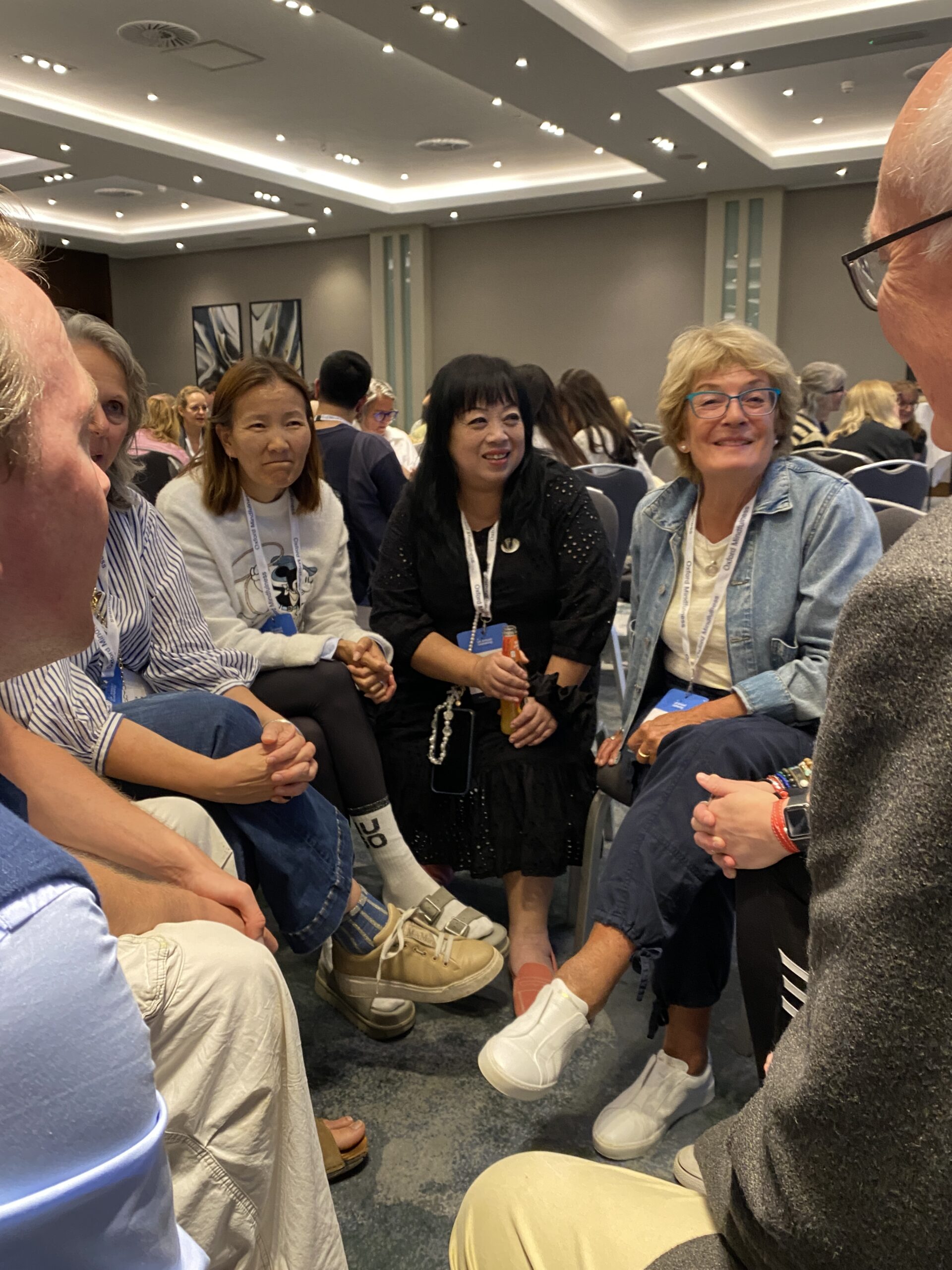In this blog, Oxford Mindfulness Co-Director of Teaching and Training, Marion Furr, shares her own experience of training to become a mindfulness teacher with Oxford Mindfulness as well as her reflections on training teachers in our 12-month programme.
At this time of the year, we are in the process of reviewing applications and confirming places for our 12-Month Teacher Training Programme.
I’m always amazed at the variety of backgrounds and motivations people have for joining our programmes. Applications come from all over the world and from all walks of life. From the volunteer in a local community working with senior citizens struggling with pain or anxiety, to the HR manager wanting to offer mindfulness as a well-being initiative in their organisations, to the clinician working with patient groups and offering mindfulness as an alternative to, or in addition to other therapeutic interventions, to the schoolteacher wanting to support their colleagues and students to flourish.
On the first day of training, when the whole group comes together for the first time and each has the chance to briefly introduce themselves and say why they are here, you can feel the connection already building across the different languages and cultures, the time zones, the backgrounds and experience.
In the midst of this huge diversity, we realise that we already have a bond – we are actually all here for exactly the same essential reason: that learning mindfulness changed our own lives so deeply and so powerfully that we all want to be able to offer the same opportunity to other people.
How the programme works
Mindfulness for Life is an experiential course, and the teacher training programme uses the same principles of experiential learning. Participants learn to teach the key elements of the programme, first by experiencing each section as a participant, led by the trainers, and then by experiencing teaching it to others in the group. These “teachback” sessions start on Day 2 of the year-long training and continue throughout the programme.
I remember my own teacher training programme at Oxford. At that time, the programmes were all delivered in person. Oxford Mindfulness is known to be a world-class mindfulness teacher training organisation and I felt certain that everybody else there was bound to be more talented and able and experienced than I was. At first, I was overwhelmed at the idea of teaching in front of the trainers and to all my fellow trainees. This initial apprehension turned into genuine dismay when I realised the “teachbacks” would start almost immediately.
However, as the programme progressed, it became apparent that this method of experiencing, teaching and reflecting, together with giving and receiving feedback was a very powerful way to develop the skills to teach mindfulness.
As the year unfolded, I found that I, and all my fellow participants, were working well together both during the scheduled training and in meetings outside the formal sessions to engage, practise, encourage and support each other to the point where we were able to demonstrate our skills to deliver an entire 8-week course to each other in Stage 3 of the programme.
All of the learning is underpinned by the foundational attitudes of mindfulness which we also develop and encourage throughout the programme: including beginner’s mind, non-judging, patience and kindness, to name a few.
As a trainer, I see this process repeated every time with each new group of participants. It is genuinely delightful to see trainees move from hesitantly practicing at the beginning of the year, to confidently delivering guided meditations and didactic teaching as the programme progresses.
We have applicants from a range of locations including UK, Belgium, Czechia, Malta, Greece, Sweden, China, Singapore Hong Kong and Taiwan. There’s also a wide range of intended populations for teaching mindfulness, including working with elderly and disabled communities, cancer and other clinical patients, yoga and art students, teachers, doctors and nurses, and isolated communities in remote locations.
It’s often mentioned by participants and trainers alike that this diversity of experience and intentions brings a rich quality to the training experience that they had not anticipated.
This diversity also means that our trained teachers contribute to the Oxford Mindfulness mission to introduce access to research-based mindfulness in all areas of society.
Everyone who trains with us with learns to teach at least 3 courses that can be used in a variety of settings: Mindfulness for Life (8-week Course) and Introducing Mindfulness (3-session course) plus either Finding Peace in a Frantic World (often delivered in the workplace) or Mindfulness-Based Cognitive Therapy (for clinicians).
Our hope is for such mindful behaviours and practice to be integrated into everyday life, with teachers and champions in all areas of society, using mindfulness and mindful approaches to support well-being both explicitly (via courses and training) and implicitly (in their everyday work and way of living).
If this speaks to you, why not apply to be part of the next Oxford Mindfulness teacher training cohort? We look forward to welcoming you.




